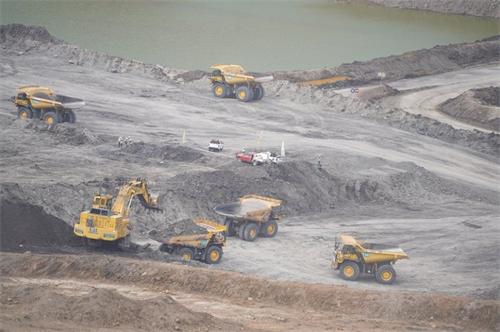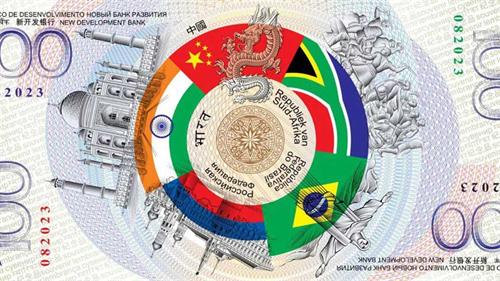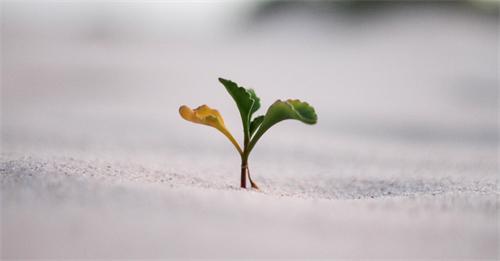Africa’s Lithium Rush: Who Controls the EV Supply Chain?

Lithium, known as the "mother of all batteries," is as strategically important in the age of clean energy as oil once was. As the world accelerates its energy transition, the race for key green metals is intensifying. Particularly in rapidly growing industries like electric vehicles and energy storage, lithium’s strategic value has come into sharper focus. From the U.S. to China to Europe, major powers are fiercely competing for control over lithium resources.
Lithium: The “White Oil” Powering the Electric Age
Lithium’s importance in battery technology is indisputable. With high energy density, fast charging capabilities, and long lifespan, it is the core material for electric vehicles. As global environmental awareness rises and the EV market booms, lithium-ion batteries are now the key driving force. According to industry forecasts, the global lithium market could exceed $31 billion by 2034. At the same time, supply constraints are looming—some financial institutions warn that shortages may emerge as early as 2027, highlighting the urgent need for new mining and refining capacity.
Lithium plays a critical role not only in EVs but also in consumer electronics, energy storage systems, metallurgy, ceramics, and glass. Its unique physical properties—high reactivity, low weight, and high energy density—make it one of the most strategically valuable resources since oil, earning it the nickname "white oil."
Africa’s Lithium Mines: From Dormant Resource to Global Hotspot
Traditional lithium powerhouses like Australia, Argentina, and Chile are facing rising geopolitical risks, environmental restrictions, and local opposition. In contrast, Africa, with its rich lithium reserves, low development costs, and high potential returns, is drawing global investment interest.
Africa’s lithium deposits are primarily located in two major geological zones:
1. The extension of the Central African Copperbelt, with the Manono deposit in the DRC as a key example.
2. The West African Craton margin, covering countries like Mali and Ghana, known for low-cost pegmatite-type lithium.
Zimbabwe currently holds the largest hard rock lithium reserves in Africa, with proven reserves reaching 11 million tons in 2023, making it the continent's lithium development frontrunner.
For instance, the Manono deposit is considered one of the world’s largest undeveloped lithium resources, with estimated reserves exceeding 400 million tons. However, due to poor infrastructure and political instability, the site remains underdeveloped. In contrast, Zimbabwe’s Bikita mine saw rapid growth—its 2023 output accounted for 70% of the country’s lithium concentrate exports. In Mali, the Goulamina lithium mine, jointly developed by Chinese and Australian firms, boasts a 20-year projected lifespan, highlighting long-term development potential.
Though issues like incomplete geological data and unstable policies pose risks, they also imply opportunities for outsized returns. Thus, a modern-day lithium “gold rush” is unfolding in Africa.
The Struggle for Control: A Triangular Game of China, the West, and Local Powers
The battle over African lithium is no longer just about business—it’s a geopolitical contest. Chinese companies have taken the lead, using a “resources-for-infrastructure” model to enter the African market early. These firms are involved not only in mining but also in processing and refining, securing control over around 60% of global lithium refining capacity, thereby establishing a full-cycle "mine-to-battery" supply chain.
To counter China’s dominance, Western countries are ramping up efforts. The U.S. Inflation Reduction Act promotes the "de-Chinafication" of critical minerals and encourages domestic firms to source stable supplies overseas. Companies like Tesla and Albemarle have already begun laying groundwork in Africa. Meanwhile, the EU’s Global Gateway Initiative has prioritized critical raw materials in its cooperation with Africa, with planned investments and partnerships aimed at supporting sustainable mining and value chain development. Countries like France and Germany have also signed lithium development deals with Niger and Namibia, respectively, signaling a return to Africa in pursuit of clean energy dominance.
Beyond China and the West, a third wave of players is quietly emerging. Australia’s AVZ Minerals has been active in the DRC for years; India’s state-owned KABIL is bidding on lithium projects in Africa; even Saudi Arabia’s sovereign wealth fund has started investing in Egyptian lithium mines. Control over Africa’s lithium is evolving into a multipolar competition.
Africa’s “Lithium Awakening”: Breaking Free from the Raw Material Trap?
Historically seen as a raw material exporter, Africa has often been “rich in resources, poor in power.” Now, more African countries are attempting to break this colonial-style economic pattern. The DRC has designated lithium a "strategic mineral," raising royalty fees from 2% to 10%. Zimbabwe has implemented a policy that prohibits the export of unprocessed lithium, aiming to promote domestic value addition by requiring local refining and processing. Similarly, Namibia has introduced regulations mandating that foreign mining companies allocate at least 15% ownership to local stakeholders, reflecting a broader push across African nations to ensure greater national benefit from natural resource development.
This “lithium awakening” represents both national sovereignty and a response to historical injustice. But the path is difficult. Africa still needs external support for infrastructure, and its technical and managerial capacity remains limited. At the same time, global capital, driven by short-term gains, may not prioritize long-term local development.
Africa: The Next Lithium Battleground?
From electric cars speeding down California highways to laborers toiling in Congolese pits, lithium is the link. Lithium represents more than a vital material for green technology—it also exposes the deep-rooted imbalances in how the benefits and burdens of the global energy transition are distributed.
The rise of African lithium is both a rare development opportunity and a test of global equity. If this “lithium rush” repeats the exploitative patterns of the past—resource plundering, inequality, and environmental degradation—then the so-called “green future” may be little more than a mirage built on the suffering of others.
But history could take a different course. This continent is awakening. Africa is not a mere “resource reservoir” for powerful nations—but a sovereign player with its own agency. Only when lithium is no longer seen as a battleground can Africa truly embrace a brighter, fairer future.



